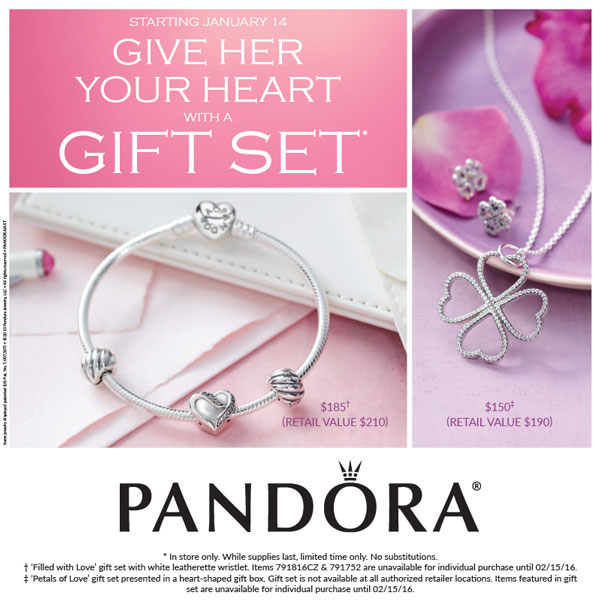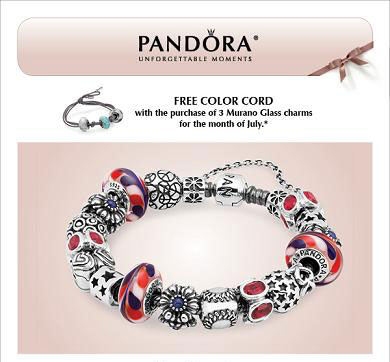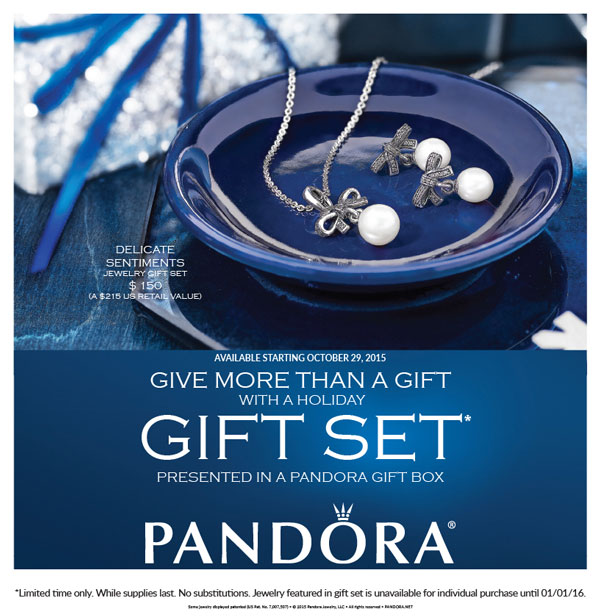
The axiom of search engine optimization is that your website will only rank for words that search engines can find on your website. If you learn nothing else about search engine optimization you must learn that one point. If you have learned that already; good, you don't have to read today, but before you go consider that many people aware of that axiom are still not applying.
Back in December 2014, I explained how to look up the keywords you are ranking for so you could identify what was missing. I was trying to illustrate the above axiom in that previous Nugget. In this #ThrowbackThursday, I'll give some visual examples of this point.
Pictures Are Worth...
Pictures might be worth 1000 words to you and me but they are worth nothing to search engines because they can't be read. It's easy for us to read this Pandora ad:

However, the search engines have no idea that this says:
Starting January 14, Give her your heart with a gift set. - Pandora
The search engines can read the name of the image, which might help if you are following my best practices for file naming, but otherwise, the information in the image is invisible. The only thing a search engine can accurately read is the image size, which is 600x600 pixels in this case.
Here's another Pandora example:

And another:

Each of these 3 Pandora ads were once widely advertised through Pandora's marketing machine. For the last few years, I've watched every month as Pandora billboards, newspaper ads, and social media ads changed like clockwork. Connecting an online ad to a website is easy with a hyperlink, but those offline ads will only help the jewelers who employ the axiom of search ranking.
From Billboard Keywords to Search Results
In the New York City metropolitan area, I see a lot of billboards for Pandora. There's one particular billboard on my weekly commute that has shown different Pandora ads every 2 weeks for more than a year. This billboard is in the perfect location with plenty of stopped traffic waiting to get through a construction area. I probably spend at least 60 seconds "parked" in front of that billboard every time as I "drive" into New York.
Pandora probably holds the contract on that billboard directly because I've seen ads for independent retail jewelers with Pandora shop-in-shops and for Pandora owned stores on that same sign. Although the ads are always different, there's always one main message, like a free bracelet, or free bead, or gift set like you see in the above ad examples.
I find that it's easier to remember the main headline message than to remember which jewelry store is being promoted. Later, when I'm not driving, I would then search Google for the headline message I saw, like "Pandora gift set," and hope to find that same ad.
However, a jewelry website won't appear in the search results unless they have included that same ad and also transcribed the words from the ad on their website. If you think it seems silly to transcribe only a single sentence, then add more details on your own.
Look again at the above blue Pandora ad that offers a gift set. The message there is quite simple with the date and planting the idea to give more than a gift. You could retype what it says, or you could flesh it out more like this:
Give More Than A Gift This Holiday
New for the Pandora Winter 2015 collection, these drop earrings and pendant feature shimmering cultured pearls that sway from pretty bows adorned with sparkling clear cubic zirconias and fashioned in sterling silver.
The entire set is presented in a Pandora gift box that's sure to make an impression
That example website copy, along with the rest of the local search optimization of your website, should be enough to surface your page when someone searches locally for that gift set.
Your website probably has a higher percentage of new visitors that find you through search than repeat visitors. Although the Pandora ad on your website will appeal to repeat Pandora buying customers, you won't attract new customers unless you provide the search engines with the written copy that they might search for.
Today's Nugget
Pandora ads provide an easy case study to make the point of today's Nugget, which is a reminder of the search ranking axiom: Your website will only rank for words you include on your website.
All of your offline advertising should be connected to your website. You can include a special domain name for tracking, but you should also create special landing pages on your website that include all the details about the ads. The goal is to have a potential customer search for the ad copy online and find you in the local results.








